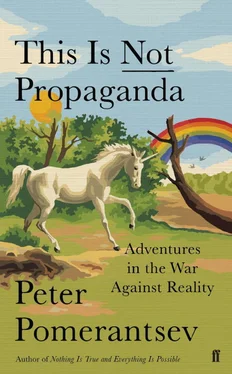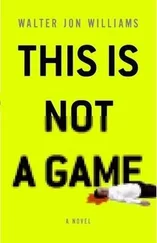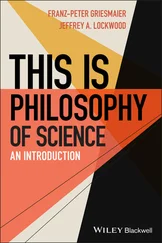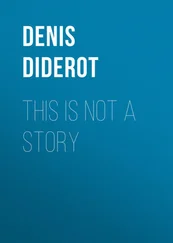Oakes never went to university and at his exclusive, aristocratic public school, Eton College, had always felt himself both less academic and poorer than the other boys. Perhaps it was the need to overcome that feeling of academic inferiority which drove him to adopt such a scientific approach at Saatchi. Could the agency actually prove, he asked his colleagues, that its ads changed people’s behaviour?
To his surprise he found there was little empirical evidence. Advertisers were good at shiny campaigns that got attention (agenda-setting). They could make a food or a politician or a country look more, or less, positive by associating them with things people liked, or disliked (framing). But changing attitudes, argues Oakes, is not the same as behaviour. Consider smoking. A campaign can show that smoking kills you. Smokers will agree it is bad but still continue with their habit. You need to work out why somebody smokes, argues Oakes, if you want to stop them from doing it. Young women, he found during his research, smoked because they thought it made them look attractive. So to change their behaviour you focus on how smoking makes their hair and breath stink, how it makes them unattractive.
In 1989 Oakes created the Behavioural Dynamics Institute, whose mission was to collect all the historical research on persuasion. Over the next four years, backed by investors from the advertising industry, he commissioned studies from dozens of academics. They wrote, to give but one example, about how Goebbels, Hitler’s propaganda minister, promoted the use of the raised-arm Sieg Heil salute because he had worked out that the forceful exhalation of breath combined with strenuous arm movements caused hyperventilation and exhaustion in the audience, which made them more susceptible to messaging, almost putting them in a trance-like state.
The Institute developed new ways to define social groups. Descriptive categories (age, gender, social class) were of limited use as predictors of behaviour. Oakes pioneered surveys by teams of anthropology students, who, usually without revealing their mission, spent long periods penetrating a community, enquiring about who people hated and trusted, what they most desired, which friends would influence them, what dictated how they behaved within a group.
One research visit in particular stunned Oakes. It was to Moscow in 1990. After he gave a three-day talk on advertising at the state energy company Gazprom, he was offered a tour of the research centre of the KGB’s Service A, as a sign of mutual respect and exchange of knowledge. The chief scientist was keen to tell Oakes all about his work. He had the freedom to conduct tests on whole villages, to test how communication and persuasion work. Oakes thought for a moment about the ethics of this (could you kill someone to test a hypothesis?) but was too excited to dwell on it. Such research was impossible in the UK. It was November, and Oakes was wrapped in a thick overcoat and mountain walking shoes, with suit shoes in his bag in case the KGB expected him to look more formal. The building wasn’t heated, and he soon found that all the academics, sitting in one large open-plan office with few computers, were wrapped in thick coats themselves. Later, they sat down to lunch and the soup was served. It was watery, and Oakes realised the chef had given him the portion with the bone and a little meat on it as a sign of hospitality. The research that Service A was conducting was epic in its sweep, but the whole system was coming apart.
In 1993 the Behavioural Dynamics Institute collated its findings and Oakes created SCL, expecting to be swamped with offers. But instead of clients beating down his door at Lots Road, Chelsea, no one could understand what he was talking about. Why would you spend months penetrating a community with teams of anthropologists to sell a chocolate bar?
Then Oakes got a call. From South Africa. Apartheid was ending, black people were being given the vote for the first time – but would enough actually go to the polling stations? Oakes was asked to identify who locals would listen to in each region to encourage them to vote. It worked. He realised elections, rather than chocolate bars, could be his game. In 1995, in Indonesia, he persuaded President Suharto, who was holding elections for the first time, to create completely separate political campaigns for the country’s thousands of islands and across its 200 million population. It worked.
More elections followed, but Oakes was never in the big league of PR companies. His methodology was slow and expensive. His clients could be the sort of rulers who might hire him, take his research and then refuse to pay; and as they were in countries where the courts were not exactly independent, there was little Oakes could do to get his money.
In 2008 another Etonian, Alexander Nix, joined SCL. He was a different type of Etonian to Oakes: he came from a fabulously wealthy background, had studied art history at university and his friends called him ‘Bertie’, a nickname out of Edwardian England. Oakes says Nix wanted to drag the research into the digital age, wanted to make money. He was better with clients. In 2012 Nix took the elections part of the company and made it his own, renaming it Cambridge Analytica (a whistle-blower would later claim that mentioning the prestigious university, which the company had no official affiliation to, impressed American clients).
Cambridge Analytica furiously tested ways of replicating ‘behavioural change’ methodology by looking at people’s social media use. They explored the potential of ‘psychographics’: the idea that your social media preferences and language predict your personality. Imagine you were running a campaign to support the right to bear arms. If the campaign manager knew someone was an anxious person, then they could target them with messages that argued they needed guns to keep them safe. The promotional literature the company put out boasted that their approach boosted voter turnout for their candidates in the 2014 US midterms by 30 per cent and over.
This is the potential nightmare of the new media: the idea that our data might know more about us than we do, and that this is then being used to influence us without our knowledge. What’s unsettling isn’t so much that ‘they’ know something about me that I considered private, hidden – though that’s unpleasant, it’s also somehow comforting, reinforcing the idea that there’s a stable ‘me’ I am fully aware of, to protect me from ‘them’; more disconcerting is the idea that ‘they’ know something about me which I hadn’t realised myself, that I’m not who I think I am – one’s complete dissipation into data that is now being manipulated by someone else.
Oakes, however, told me he was sceptical that Facebook likes and online product purchases could replicate months of in-depth, in-field research. He had refocused his own work onto Western militaries. The invasions of Iraq and Afghanistan had been disasters partly because no one had paused to understand the local populations. ‘At least by the time we got out of Afghanistan we understood the locals. We left in a much more thought-through way than when we came in,’ says Oakes. He called his part of the business SCL Defence.
In 2018 Nix was recorded by journalists telling a prospective client from Kenya he could use prostitutes as a honeytrap for the man’s political rivals. It later transpired that Cambridge Analytica had access to the data of eighty-seven million Facebook users, without their consent. The sordid details seemed a far cry from the high-tech claims of psychographics. The scandal destroyed Cambridge Analytica. At SCL Defence Oakes’s military clients disappeared: no government would touch anyone even remotely associated with Analytica. But Oakes doesn’t sound bitter about Nix. They had been partners. Nix had shared some of his profits with Oakes. And though he’s lost his business, Oakes feels he’s won the intellectual war. Everyone now agrees that influence means understanding your audience more fully than the next person, fitting your message to them rather than pushing an ideology top-down.
Читать дальше












